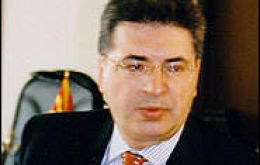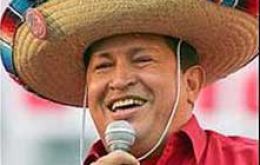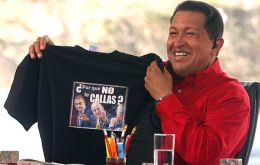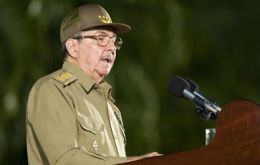MercoPress. South Atlantic News Agency
Latin America
-
Wednesday, July 30th 2008 - 21:00 UTC
Alternative energy: 12 wind turbines for Valparaiso

Plans are underway in Chile to invest 47 million US dollars in a wind park at Punta Curaumilla in Region V's Laguna Verde. The project comprises of 12 wind turbines with a 2MW capacity each and seeks to light up 10,000 homes and businesses in the Valparaíso region.
-
Wednesday, July 30th 2008 - 21:00 UTC
P Arenas safest city but minors' drinking major problem

Punta Arenas is the safest city in Chile but it has an important drawback which is minors' alcohol consumption, admitted the Carabineros regional chief Mayor Humberto Riffo during the presentation of the annual report to local authorities.
-
Tuesday, July 29th 2008 - 21:00 UTC
UN General Assembly president visits South America

General Assembly President Srdjan Kerim left Monday night to Latin America for a three-country visit that will focus on issues ranging from climate change and financing for development to counter-terrorism efforts and advancing reform of the United Nations.
-
Tuesday, July 29th 2008 - 21:00 UTC
President-preacher administration 10 year list of “records”

Examples of loquacity, extensive traveling and nepotism are some of the records that the Miami based Spanish language daily “Nuevo Herald” has collected as a “present” extended to the controversial Venezuelan president Hugo Chavez on his 54th birthday, celebrated on Monday July 28th.
-
Monday, July 28th 2008 - 21:00 UTC
Chilean commuters take to bikes to keep fit and save

Chilean bike manufacturers and promoting groups reported this week that bicycle sales increased 30% during the first six months of 2008 in Santiago. New lightweight and easily transportable aluminum bikes have much to do with this sharp increase in sales and bike use, as do increased petroleum prices and new bicycle cycle lanes
-
Monday, July 28th 2008 - 21:00 UTC
Proud Chavez shows “why don't you shut up?” t shirt

Venezuelan president Hugo Chavez during his weekly program “Hello President” exhibited a t short with the phrase “Why don't you shut up?”, a gift from the King of Spain during his recent visit to several European countries.
-
Monday, July 28th 2008 - 21:00 UTC
Electronic money transfer service to help Latam migrants

Chile, Spain and Uruguay launched on Monday a new electronic money transfer service which links their countries, using technology developed by the United Nations Universal Postal Union (UPU).
-
Monday, July 28th 2008 - 21:00 UTC
Mexico and Brazil risk ratings down, Argentina's climbing
Mexico and Brazil risk ratings dropped six and nine points respectively while Argentina's climbed ten, according to the EMBI index from the US JP Morgan bank reported on Monday the Mexican Finance ministry.
-
Sunday, July 27th 2008 - 21:00 UTC
Raul Castro marks anniversary with austerity warnings

Cuban President Raul Castro has warned that Cubans must be prepared for the consequences of the current global economic crisis.
-
Saturday, July 26th 2008 - 21:00 UTC
Chavez visit Spain and jokes with King JuanCarlos

Venezuelan President Hugo Chávez laughed and smiled his way through a hug-and-make-up visit to Spain yesterday, his first since a now-infamous exchange in which Spain's normally reserved monarch told the voluble Venezuelan leader to “shut up” at a summit in Chile last year.
